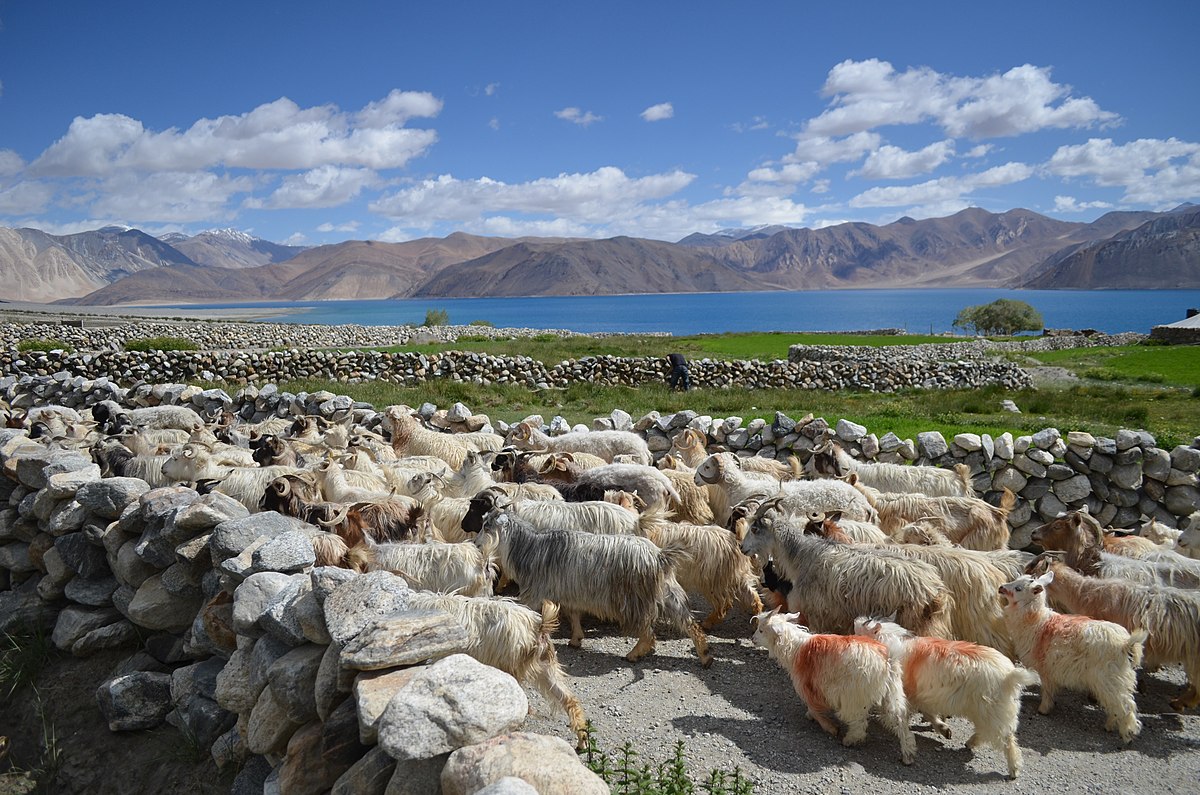THE ENVIRONMENTAL COST OF CASHMERE
Kashmir has historically been a natural habitat for cashmere goats. With its natural grasslands and cold climates, the region provides the perfect formula for raising goats to produce one of the world’s finest fibres. It takes four goats to produce enough fibre for a single cashmere sweater, whereas a single sheep can produce enough wool to make up to five woollen sweaters. Cashmere has therefore traditionally been considered a luxury fibre, however today casual cashmere products are widely available and affordable. The increase in the global demand for cashmere and resulting increase in the goat population is destroying the grasslands of Kashmir.
RESPECTING OUR ENVIRONMENT AND PROTECTING OUR GRASSLANDS
Van Kukil Cashmere is fully committed to our environment and preserving the luscious grasslands of Kashmir. We are working with partners including the Sustainable Fibre in supporting on-the-ground efforts in Kashmir to begin reversing the desertification that has taken place.
The most sustainable and humane way of harvesting the cashmere is to gently hand-comb it from the goat, and Van Kukil ensures that this method is always used. Van Kukil respects ‘FAIR TRADE’ and as such we cut out any unnecessary intermediaries in the production process to preserve the fair price that herders get for their cashmere.
WORKING CONDITIONS
- Creating thousands of jobs:
Van Kukil helps to create jobs, helping to lift people out of poverty, and contributing to economic growth and improved standards of living. Through our business we create around 1,100 jobs for locals. Women undertake about two-thirds of these jobs. For many of these women this is their first job that provides an income, their first work outside the home and therefore a first step towards independence.
- Fair and equal conditions:
Equality and non-discrimination in employment is value that we hold in the highest regard. All Van Kukil Cashmere workers have the right to equal opportunity and treatment, and all employers have a corresponding obligation to ensure that the company is free from discrimination and harassment.




